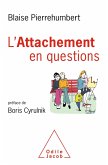By examining how these questions exploit natural human biases and social conditioning, the book provides valuable insights into maintaining authentic communication while protecting oneself from manipulation. The book's progression is methodically structured around three key areas: understanding the psychology behind deceptive questions, exploring social manipulation dynamics, and developing defensive strategies.
Through real-world examples from business negotiations, legal proceedings, and everyday interactions, readers learn to identify various types of trick questions, including loaded questions and false dichotomies. What makes this work particularly valuable is its practical approach to complex psychological concepts, making them accessible through relatable scenarios and applicable frameworks.
Bridging the gap between theoretical understanding and practical application, the book serves both professionals in communication-intensive fields and general readers seeking to enhance their critical thinking skills. It stands out for its comprehensive examination of how trick questions have evolved from ancient philosophical dialogues to modern marketing techniques, while maintaining a strong focus on ethical communication practices in today's information-rich environment.
The book's balanced approach acknowledges the complexities of human interaction while providing concrete strategies for maintaining authentic dialogue in challenging situations.
Dieser Download kann aus rechtlichen Gründen nur mit Rechnungsadresse in A, B, BG, CY, CZ, D, DK, EW, E, FIN, F, GR, H, IRL, I, LT, L, LR, M, NL, PL, P, R, S, SLO, SK ausgeliefert werden.









